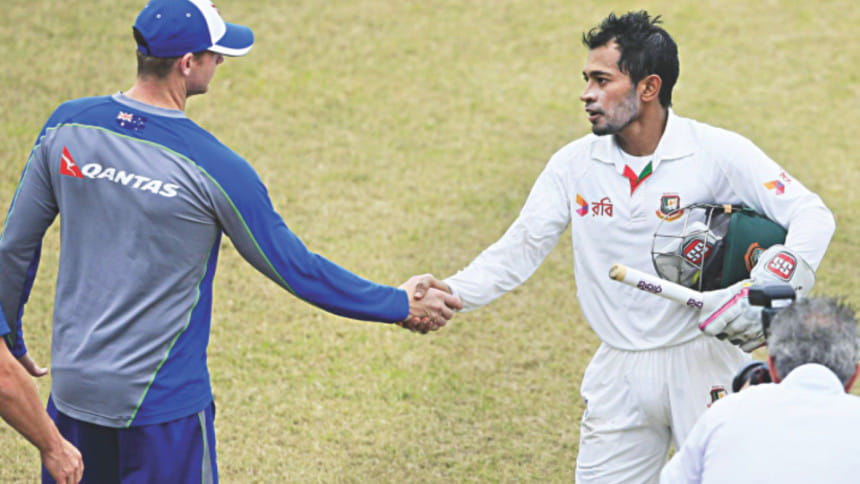The deepening well of the Tigers' belief

There is a query that has come to be associated with Bangladesh's Test wins. It rang out on October 30 last year in Mirpur, when the team clinched their first ever Test win over England. It was the chorus in Colombo on March 19 this year when, after a Galle thrashing and with turmoil in the ranks, the Tigers squared the series with a nervy and hard-fought win in a Test that also happened to be their 100th. So it was predictable when, after beating Australia for the first time in Test cricket yesterday, the question of whether this Test was their greatest win popped up.
Before the Test, when one of the questions about the noises of a 2-0 win coming from the Bangladesh camp finally got under the skin of Australia skipper Steven Smith, he testily said that it was a brave forecast from a team that have won just nine of their 100 matches. And he was right -- statistically speaking Test wins for Bangladesh are in no way routine occurrences. However, there seems to have been a change in attitudes.
That question of the greatest or most important win has always been answered diplomatically, as if each win is a precious child and favourites cannot be chosen openly, lest feelings are hurt. Yesterday, there was a subtle change as although not naming a favourite, each win was seen in their context and as part of a wider narrative.
"The win against England gave us the belief to win -- it helped us believe that we can mount comebacks," said Shakib Al Hasan. "And [the win in] Sri Lanka was also a big achievement. Not many teams, other than India, have had much success in Sri Lanka... it was a big thing for us to know that we can win abroad."
The wins are not just valuable for the history they created -- the England win was the first over a full-strength, higher ranked side and the one in the 100th Test was their first win away over such a team -- but they have intrinsic value for the team because of the belief that can be drawn from them, to be used on occasions such as yesterday.
The confidence from knowing that they can mount comebacks in Tests against more fancied opponents must have been priceless when they resumed yesterday with David Warner and Smith, already having benefited from missed chances, batting serenely. Tamim Iqbal dropped another difficult one when Smith blasted one through mid on. But even as the duo took the score to within 100 runs of the target with eight wickets still to go, Bangladeshi shoulders did not droop.
They knew they were capable of winning matches they are not supposed to. This transformation has happened in ODIs, a format where not too long ago each win was treated as 'historic' and 'most important'.
That belief has been in evidence even before the series began. As Shakib took pains to explain yesterday, he never said that they will win 2-0, only that a 2-0 victory is possible. Even though it is a watered-down version of the pre-series buzz that the media lapped up, a statement of such boldness against the most successful Test tradition in history spoke of a team willing to back it up. And now that they have, Shakib reiterated the claim with renewed confidence. "Neither Australia nor we could have said for certain that we will win 2-0. Yes, now we can say that it is possible."
Australia cannot.
The win is of course historic insofar that it is the first against Australia. But there will be at least four more instances (six more if new entrants Afghanistan and Ireland are included) of Bangladesh beating a Test team for the first time. So while they will be historic, the importance will diminish with each passing win. In the wider lens through which Shakib and Co are viewing things now, the importance of this win will hinge on whether they can take the belief and create a unique event in Bangladesh's history in Chittagong.

 For all latest news, follow The Daily Star's Google News channel.
For all latest news, follow The Daily Star's Google News channel. 








Comments